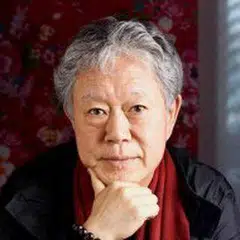Heavenly dishes in a little Shanghai restaurant
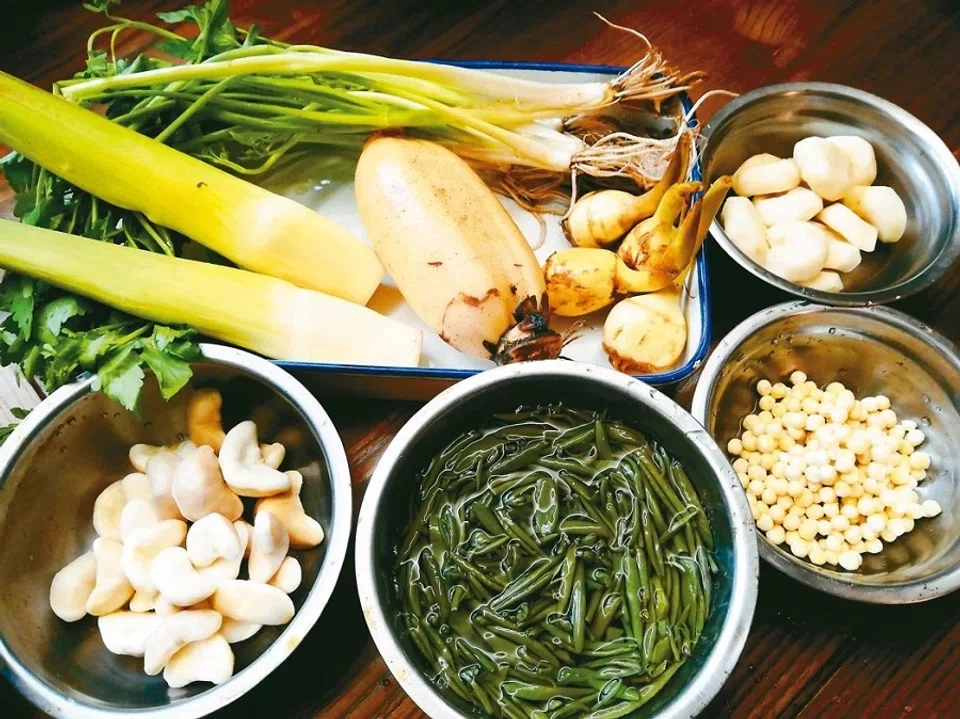
Autumn is the perfect season for travelling. The summer heat cools down, fruits are ripe for the picking, and all kinds of food taste great. I often visit Xiangshan in autumn, admiring the sight of ginkgo trees turning golden. Or I would head to Wakayama in Japan and be uplifted by the cheery sight of ripe persimmons.
Autumn's crabs and pears; lotus roots, chestnuts, ginkgos, water caltrops, and perillas that bloom in autumn; plump pomelos... I miss them all.
Spring is all about the fragrance of plants and flowers; it's the season of scent. Autumn, on the other hand, is about the freshest ingredients and harvested fruits; it's the season of taste.
During the Five Dynasties and Ten Kingdoms period, someone gave Chinese official and calligrapher Yang Ningshi a bunch of chive blossoms in autumn. He wrote a letter of appreciation, which became the famous Jiu Hua Tie (《韭花帖》, lit. chive blossoms couplet).
Jiu Hua Tie ranks fifth among all running or semi-cursive scripts (行书). The best is Wang Xizhi's Lanting Xu (《兰亭序》Preface of the Orchid Pavilion), but the original is long lost. Yan Zhenqing's Ji Zhi Wen Gao (《祭侄文稿》Eulogy for a Nephew) ranks second, and is kept in Taipei's National Palace Museum. It is a heart-wrenching eulogy to Yan's nephew, who was killed in the An Lushan Rebellion.
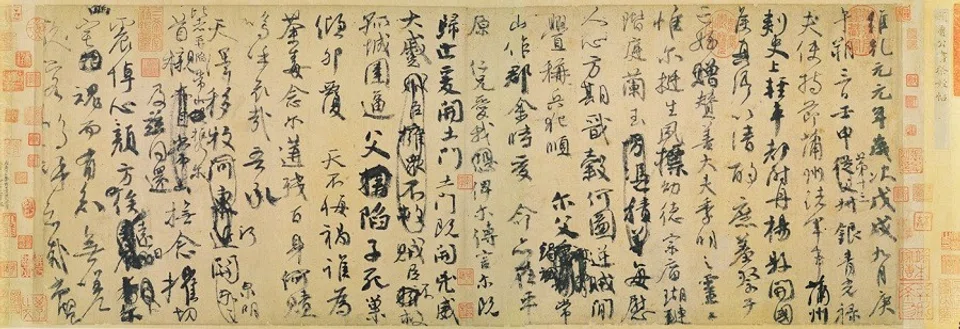
Su Shi's Han Shi Tie (《寒食帖》, lit. cold food couplet) is a manuscript and the world's third-best semi-cursive script. A line goes: "In an empty kitchen, some cold food is being cooked; the fire beneath the broken stove kept burning with wet weeds." Han Shi Tie recounts the poet's experience of eating cold food (寒食 hanshi) during the Hanshi Festival, with each brush stroke filled with the demoted and depressed literati's desolation and despair.
Beauty in simplicity
I'm especially fond of the fifth-ranked Jiu Hua Tie. Coincidentally, my mother frequently used chive blossoms in her cooking. She sometimes called them chive buds too. She would stir-fry chive blossoms and buds with shredded squid, shredded chicken, egg and firm tofu, which all make for tasty treats. The flavour is stronger than that of young spring chives, and when stir-fried with chillies and black soybeans, it is exactly what Yang Ningshi described as "the beginning of the feisty flavour of chive blossoms".
I am surprised that this poet nicknamed Yang Fengzi (杨疯子, Crazy Yang) actually used chengwei (逞味) to describe the taste of chive blossoms. Cheng (逞) is about showing off one's superior strength and a kind of valiance that knows no bounds. Cheng is also a kind of wilfulness that celebrates life's bold and carefree vitality. The poet is correct. Cheng indeed depicts the carefree joy of chive blossoms gently swaying in the cool autumn. It's autumn - it's the season of chive blossoms and the time to meditate over the glorious words written about them.
Jiu Hua Tie exalts the happiness of ordinary life.
In fact, "good culture" in tradition speaks mostly about ordinary life, stripped of all pretence and pomposity.
Yang's letter of appreciation roughly goes: "I was taking a nap and woke up hungry. It so happened that I received a plate of food. Autumn, the beginning of the feisty flavour of chive blossoms. Eat them together with mutton and it's such a delicacy. I ate my fill and immediately felt better. This is my letter of thanks."

I'm not sure if that "plate of food" would have been a plate of chive blossoms or a plate of mutton with chive blossom sauce? His letter did mention "pairing it with fatty lamb", which hints that it could have been the latter.
In modern French cuisine, lamb chops are paired with mint sauce. In a small eatery in Taitung, scallion pancakes are served with chive sauce, which is just as nice. When Yang talked about having fatty lamb with a side of chive blossom sauce, he probably meant letting the pungence of the sauce bring out the flavour of the lamb.
Jiu Hua Tie exalts the happiness of ordinary life. Despite experiencing tumultuous times and the chaotic Five Dynasties period, "Crazy Yang" preserved the humble simplicity of the layman through it all.
Lauded as a pivotal figure in the Tang-Song transition of Chinese calligraphy, Yang was not overly solemn or narcissistic and did not wallow in self-pity like the typical literati. He wrote about the little things in life that could be so simple and yet so pure.
-----------
Admiring Jiu Hua Tie, I'm reminded of the shui baxian (水八仙, "eight aquatic immortals", referring to the eight freshwater vegetables of Manchurian wild rice, lotus root, water celery, fox nut, arrowhead, water chestnut, water shield, and water caltrop) feast I had in Shanghai one autumn.
I haven't been to Shanghai in three years due to the pandemic.
I used to visit the city every year in the past, especially during autumn. That's when the wind blows and the leaves of the Chinese parasol trees on Xinhua Road begin to fall. I love stepping on the fallen leaves as I stroll along, feeling like autumn has truly arrived.
The Aurora Art Museum houses a Northern Qi dynasty Buddhist statue from Qingzhou that looks still and peaceful, as if he has seen the vicissitudes of life throughout 1,500 years.
As a big city, there are many places to visit in Shanghai. Every time I'm there, I'd always visit two places: the Aurora Art Museum in bustling Lujiazui and a private kitchen located in a building along an old alley - Xiaojin Chu (小金处, Jin's Humble Abode).
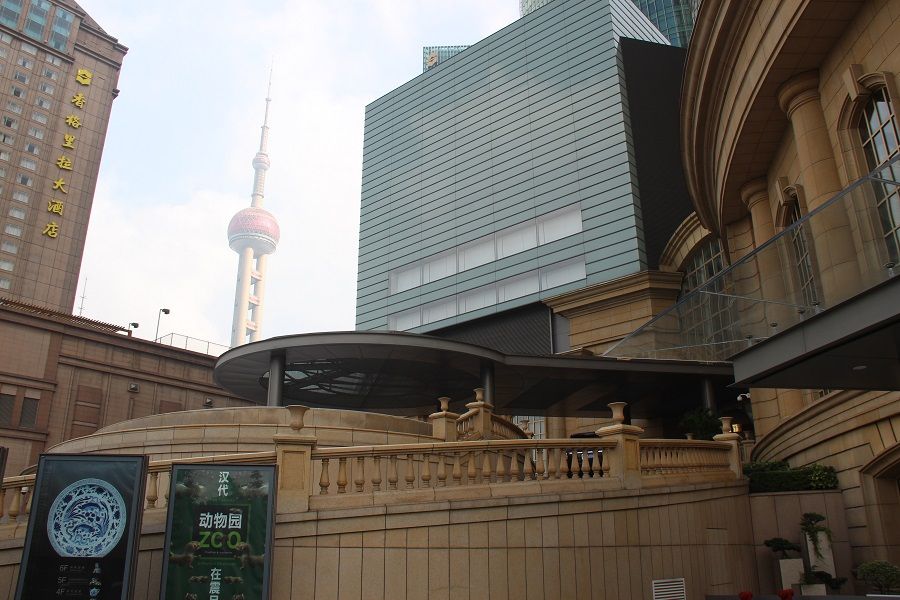
The Aurora Art Museum houses a Northern Qi dynasty Buddhist statue from Qingzhou that looks still and peaceful, as if he has seen the vicissitudes of life throughout 1,500 years. His eyes are full of compassion and he wears a slight smile. Everything is but a dream and a bubble, so naturally, the heart is free of worry.
A little restaurant that feels like home
Xiaojin Chu is a private kitchen without a signboard or a restaurant logo. Even after you enter an alley, pass through a dense bamboo forest across the courtyard and ascend a flight of wooden stairs, you still wouldn't know where the "restaurant" is.
It's such an ordinary place, like someone's home. Perhaps only those who are truly fated to eat here will have a chance to discover the place.
Indeed, I've been to Xiaojin Chu a few times and it never felt like I was eating at a restaurant. Instead of saying that Xiaojin Chu is a "restaurant", it actually feels more like a "home".
And it really is a home - how warm and luxurious it is to host guests in your own home!
A single whiff would transport me back to the time when I was enveloped in the aromas of Mother pan-frying a crimson sea bream on low heat in the kitchen while I was doing my homework.
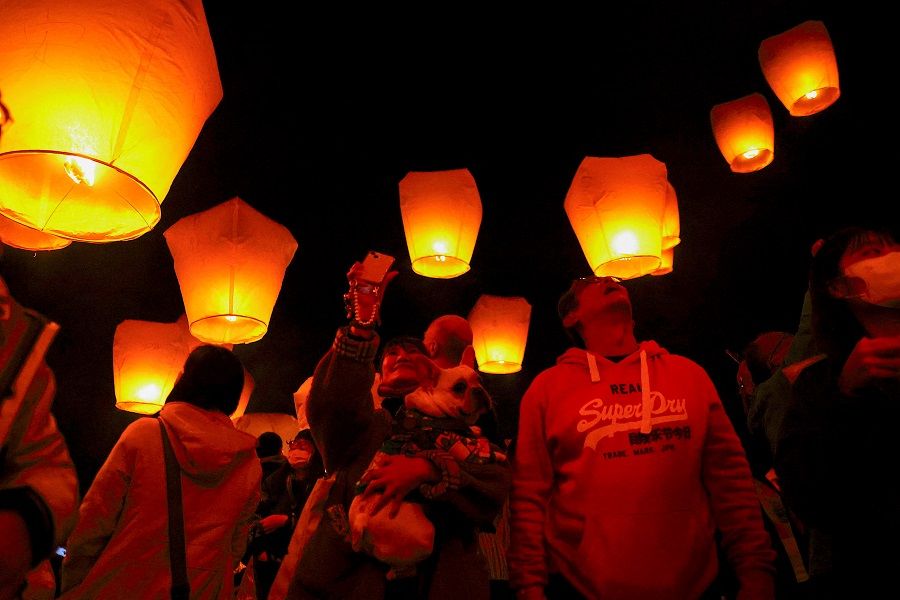
At the top of the stairs, there's a kitchen to the right, where dishes cooking on the stove emanate lovely aromas. A single whiff would transport me back to the time when I was enveloped in the aromas of Mother pan-frying a crimson sea bream on low heat in the kitchen while I was doing my homework. It was a slightly burnt aroma that came and went. In my memories, that was the smell of home.
Entering the main living space of Xiaojin Chu, one finds a massive ten-seater round table on one side. A few chairs and a small coffee table are on the other side, resembling a simple living room. It looks just like an ordinary home.
When I came here for the first time, I immediately felt at home. What an incredible experience. Filled with the troubles of modern life, a home doesn't feel like one anymore. So, I miss going to Jin's place; sitting there makes me feel at ease.
Jin, the head of the family, is busy cooking in the kitchen. His wife Xiaoping has a round face and is kind and friendly. She felt like family the first time I saw her too.
Jin is from Suzhou and grew up with his grandmother, which probably means he ate the most authentic Jiangnan cuisine when he was growing up. The food he enjoyed must have been ordinary home-cooked meals, nothing fancy or pretentious. Most people learn to cook from their mother or grandmother. This man from Suzhou inherited his grandmother's warm and delicate handicraft.
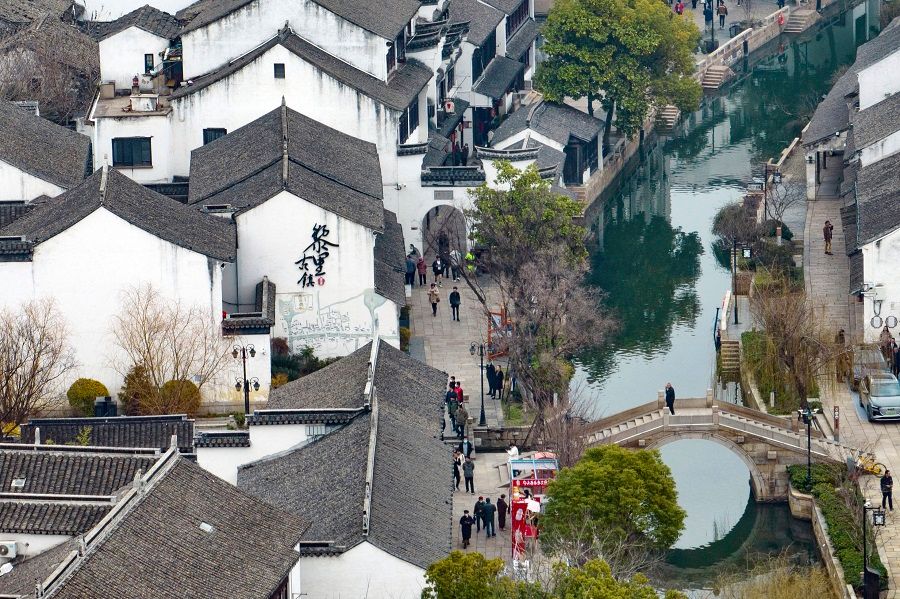
Jin is a photographer by profession and is familiar with Taiwan's art circle. His vintage photographs hung up on the walls have a warmth to them, their black-and-white tones adding a rich nostalgic charm.
The bubbly Xiaoping shares that her mother is from the Puyuma (卑南) tribe, but she later came to Shanghai, where she met Jin and fell in love with his photography, and more so with his amazing cooking. Jin often cooked for his friends at home, and gradually became popular, eventually becoming a private chef. Thanks to the vitality of Xiaoping's maternal lineage, the Puyama tribe, the photographer also shared the joy of private dining with us.
But I have always felt that the most valuable thing in the world is actually the "ordinary people" who are content with life and prepare their meals with love and care.
In recent years, private kitchens have gained popularity but they are sometimes too flamboyant, be it in terms of home decor or food menu, and lack the simplicity of an ordinary home. Xiaojin Chu is by far the only private kitchen that looks most like a "home" to me. Putting aside its furnishing that exudes a homey feel, what's even more amazing is that every dish served makes me feel like I am eating at home.
A Tang dynasty poem lamenting the decline of the southern aristocracy roughly goes like this: "The swallows that used to perch under the eaves of prominent homes have all flown into ordinary homes now." But I have always felt that the most valuable thing in the world is actually the "ordinary people" who are content with life and prepare their meals with love and care. The aristocrats who lived in "prominent homes" and were constantly mired in political struggles were not so fortunate.
Xiaoping, who has the blood of the Puyuma people flowing inside her, is vivacious and bubbly, while Jin, typical of men from Suzhou and Hangzhou, is gentle and thoughtful. Together, they reflect how lovely it is to be "ordinary". If there is a next life, I would still wish to be an ordinary person.
Jin occasionally emerges from the kitchen to greet his guests after cooking. He is a man of few words - he is happy to see everyone praise his dishes, but remains reserved and humble.
From a cultural perspective, a blind and radical pursuit of "purity" often marks the beginning of decline.
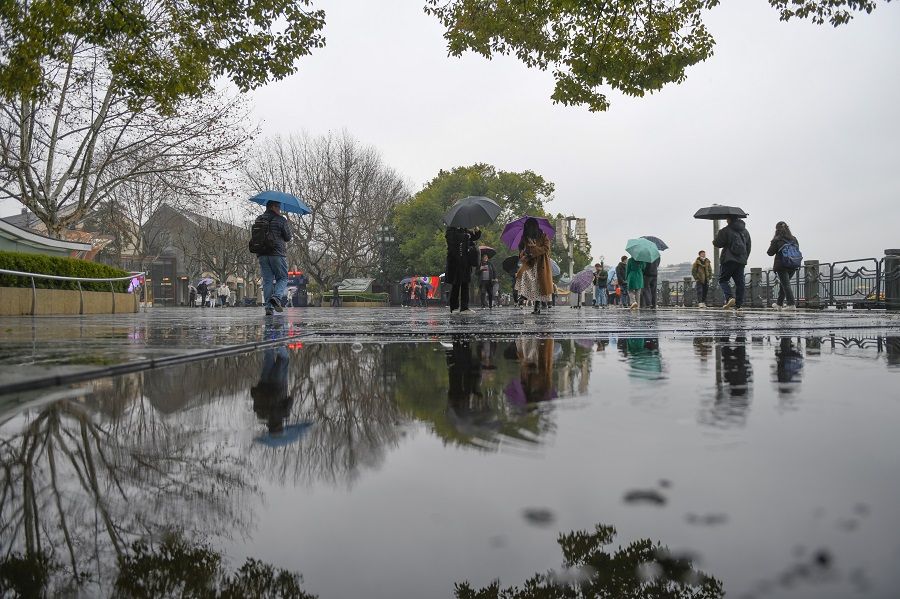
I admire both the gentleness of people from the Suzhou and Hangzhou area, and also the liveliness and vitality of the Puyuma people.
While Xiaoping's mother is from the Puyuma tribe, her father is a Hunan native. This is a common cultural pairing in Eastern Taiwan. Many of my friends exhibit these characteristics: they are especially outstanding, courageous, and lively, but also very accepting and respectful of differences. Culturally, the more complex the bloodline, the more innovative and creative the people are. Stay homogenous for too long and you will most probably regress.
To preserve the purity of the bloodline, the ancient Egyptian royal family married within the family, and gave birth to a group of intellectually disabled people, ultimately leading to its collapse.
From a cultural perspective, a blind and radical pursuit of "purity" often marks the beginning of decline.
That's why I feel infinite vitality every time I visit Jin's and Xiaoping's house. Jars of osmanthus syrup, pickled plums, preserved radish and preserved mustard greens sat on a tall shelf. I guess most of them must have been prepared by Xiaoping - this is a common sight in people's homes in the eastern region of Taiwan.
I remember a dish called "Suzhou Dongshan plain sliced lamb jelly". It was exceptional; the lamb glistening like a piece of jade. Jin said that his grandmother would even secretly make this dish during the Cultural Revolution.
Ordinary people sometimes faced ridiculous things; fortunately, tradition was still "secretly" passed down.
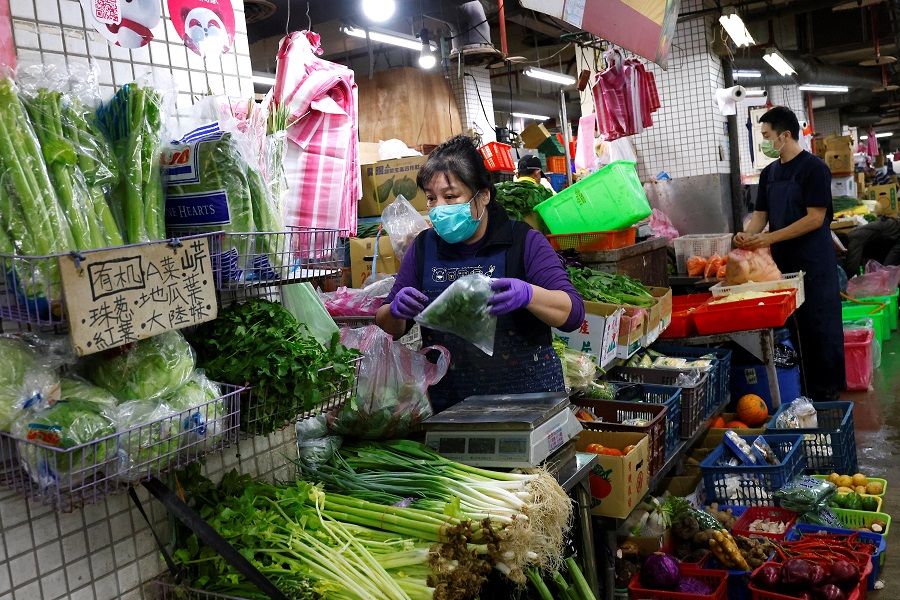
Friends who visited Shanghai with me also remember Jin's steamed meat with fermented bean curd, pine nuts with ham, marinated Asian swamp eel, stir-fried garlic scapes with pork, and steamed fermented bean curd with pork belly and taro. Most of his menu items are ordinary home-cooked dishes too.
Also, pig trotters cooked in yellow wine lees, instead of red wine lees, are much more aromatic and rich.
Heavenly dishes handcrafted by mortals
We especially miss Jin's cattail crucian carp soup. Although it has a milder taste than the usual shredded radish soup with crucian carp, its taste lingers. Cattails are aquatic plants placed in the same category as bamboo shoots in the Classic of Poetry (《诗经》). It refers to the cattail's young and tender shoots in spring. Old cattail stalks are used to weave baskets to hold fish, crabs and prawns. This is a common practice in the Jiangnan region.
Black locust flowers are edible and can be used in cooking. I will never forget the taste of Xiaojin Chu's black locust flower wontons.
Xiaoping grew up in Eastern Taiwan and vividly remembers the white ginger lilies that covered her hometown. I really admire her for actually growing white ginger lilies on Shanghai's urban rooftop and mixing them with minced meat to be used as tofu puff fillings. Just like that, a Jiangnan-Puyuma stuffed tofu dish was born.
The concept of eating local and seasonal food is about understanding the dialogue between one's body and nature. Nature refers to the earth, and also the seasons.
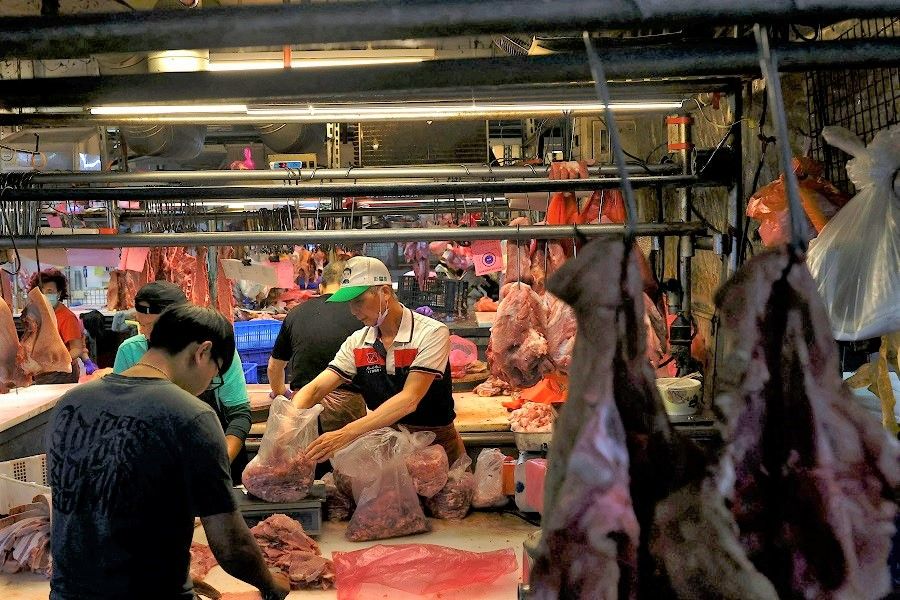
Xiaoping taught me her special peach gum dessert recipe: make a soup base from snow fungus, black fungus and peach gum, and then add jujubes, wolfberries and cranberries. I understood these instructions, but Xiaoping tweaked her recipe according to the seasons: in the summer, the dessert would be chilled and pineapples would be added; in the autumn, pears would be added instead; in the winter, it would be served with longans and lilies.
Ordinary people live their lives with focus and dedication, and so they prepare food according to the changing seasons and solar terms. The concept of eating local and seasonal food is about understanding the dialogue between one's body and nature. Nature refers to the earth, and also the seasons.
Xiaoping's specially concocted rose lychee syrup can also be added to her peach gum dessert, giving it the cultural flavour of Xiaoping's Puyuma roots. Thus I reckon "Xiaojin Chu" can be renamed "Xiaojin and Xiaoping Chu" (Jin's and Xiaoping's Humble Abode).
Vegetable feast: the eight 'aquatic immortals'
Lastly, I must mention that what I miss the most is the shui baxian feast I had one autumn.
In autumn, one must wait for all of the eight freshwater vegetables to be available before such an autumnal feast of shui baxian could be enjoyed.
I initially thought that this was a vegetarian dish but these eight vegetables are in fact paired with other ingredients to make a complete feast. While some meat is used, they do not steal the limelight of this vegetable-forward meal.
I kept the recipe with me and cherished it dearly. I relish the autumn when all eight "aquatic immortals" are in season, and treasure the fact that the ordinary people's thousand-year tradition has not been destroyed.
None of the dishes are particularly extravagant; and while there is a mixture of meat and seafood in the dishes, the vegetables remain the star of the dish.
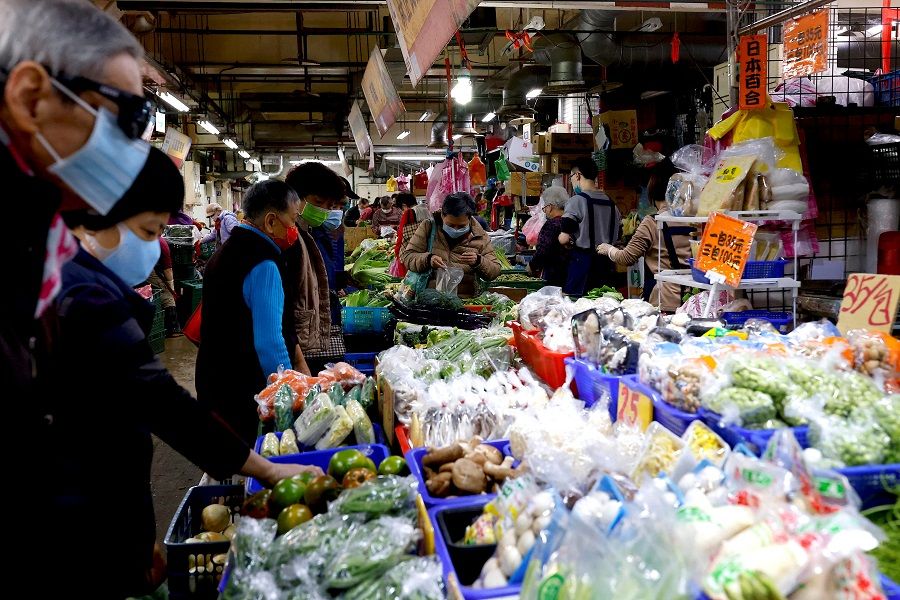
When I was young, my house was situated between two rivers and so there were plenty of aquatic plants. After school, I often picked Manchurian wild rice shoots from the fields and ate them raw; I still vividly remember that timeless flavour. Water caltrops and lotus roots are common in Taiwan, while water chestnuts are a common ingredient in Mother's dishes. Water chestnuts have a dark chestnut brown shell and a crunchy pulp inside. Mother added them to her pearl meatballs and lion's head meatballs for that added crunch and texture in the ball of meat.
The water shield plant is uncommon in Taiwan. I've only read about them in the story of Chinese scholar Zhang Han, who was reminded of his southern hometown's water shield when the autumn wind blew and he even resigned from work, just to return home to have a bowl of water shield and sea bass soup.
This story became a classic, and the local snack saved a man whose disposition was almost drowned out by officialdom.
I asked Xiaojin Chu for permission to share the menu of the shui baxian feast we ate that night. They were more than willing to do so:
1. Glutinous rice with lotus root
2. Stir-fried edamame with water caltrop
3. Stir-fried shrimp with water chestnut
4. Stir-fried firm tofu with water celery
5. Braised pork belly with arrowhead
6. Stir-fried shredded eel with Manchurian wild rice
7. Clam soup with water shield
8. Osmanthus dessert soup with fox nut
None of the dishes are particularly extravagant; and while there is a mixture of meat and seafood in the dishes, the vegetables remain the star of the dish. This is what I think "vegetarianism" is - not intentionally abstaining from meat but allowing for the natural pairing between meat and vegetables.
This is when they seem truly like the "Eight Immortals Crossing the Sea", who gently arrive without any malicious intentions, but are yet so precious and delightful.
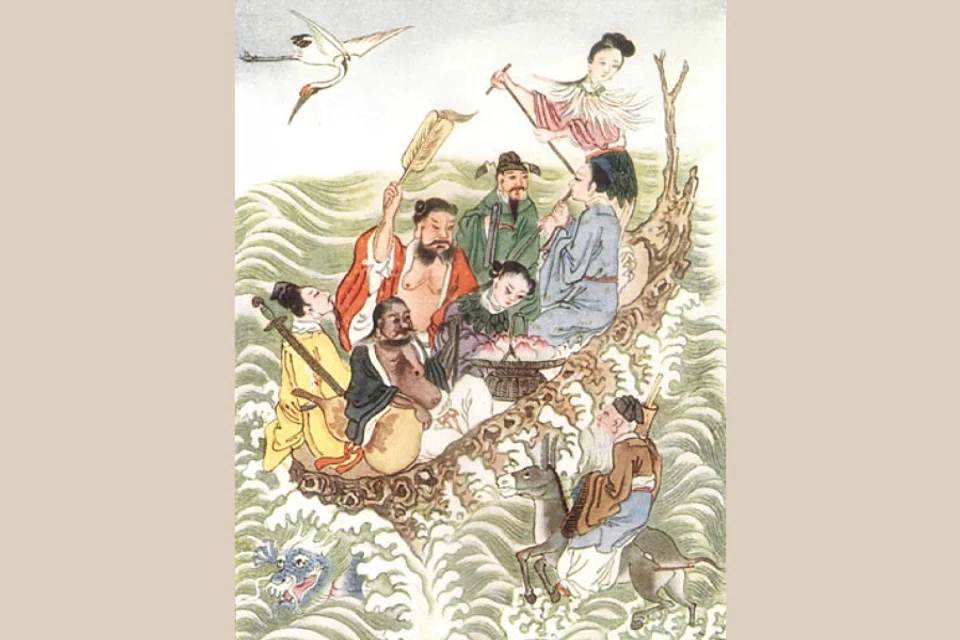
The eight seasonal freshwater vegetables, greatly cherished, are transformed into an eight-course meal once in season. This is when they seem truly like the "Eight Immortals Crossing the Sea", who gently arrive without any malicious intentions, but are yet so precious and delightful.
Recalling the only time I got to enjoy the shui baxian feast, I pray that the pandemic will quickly end so that I can visit Xiaojin Chu again next autumn.
This article was first published in Chinese on United Daily News as "五行九宮蔬食10--韭花與水八仙".
Related: Taiwanese art historian: The joy of sharing food in old Taiwan | Remembering Mother's cleaver in the 'Palace of Versailles kitchen' | Pickled vegetables, fermented beancurd and stinky egg: An art historian's love of preserved foods | The old days of eating well without a refrigerator | Taiwanese art historian: Why a mother's winter melon soup is best | Taiwanese art historian: The five elements of cooking in the olden days
